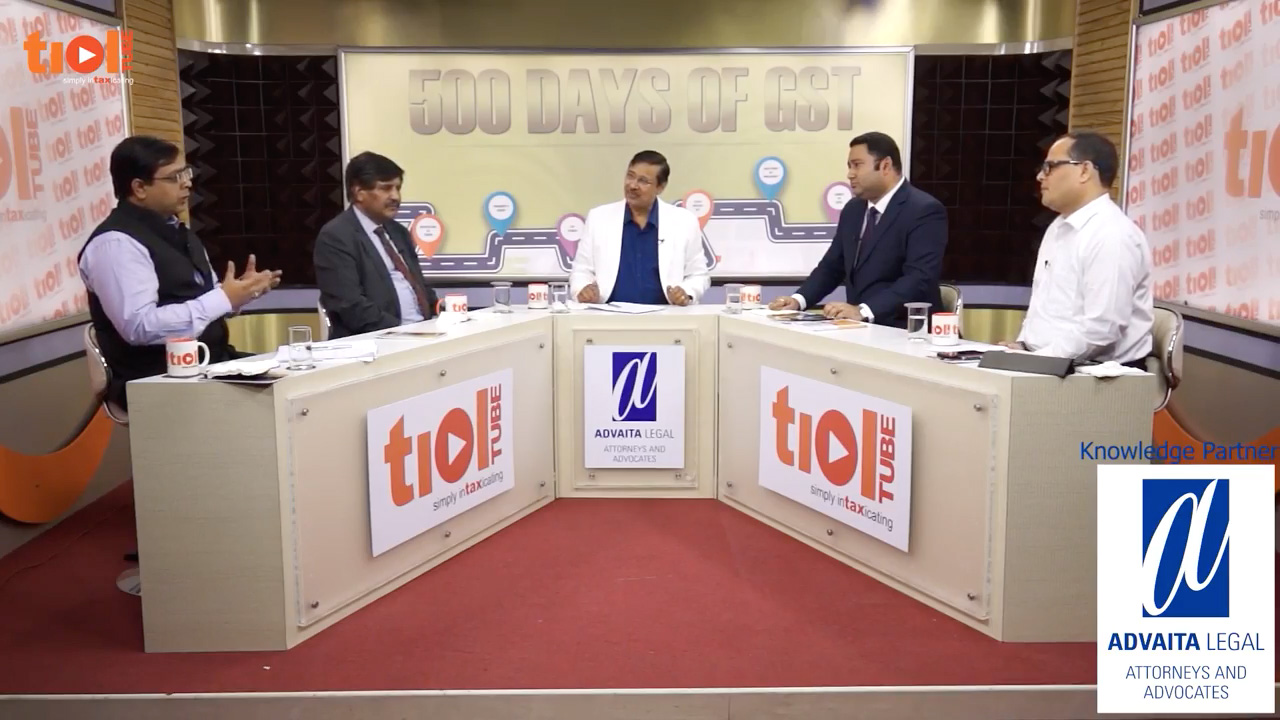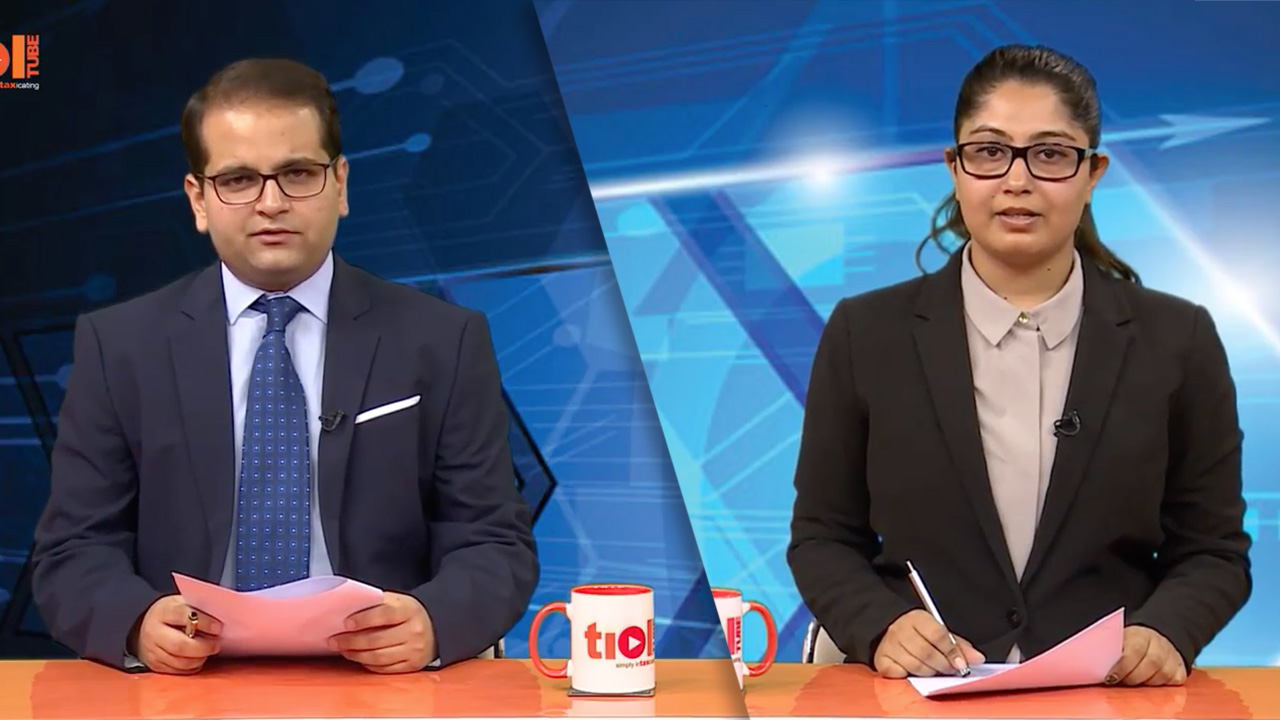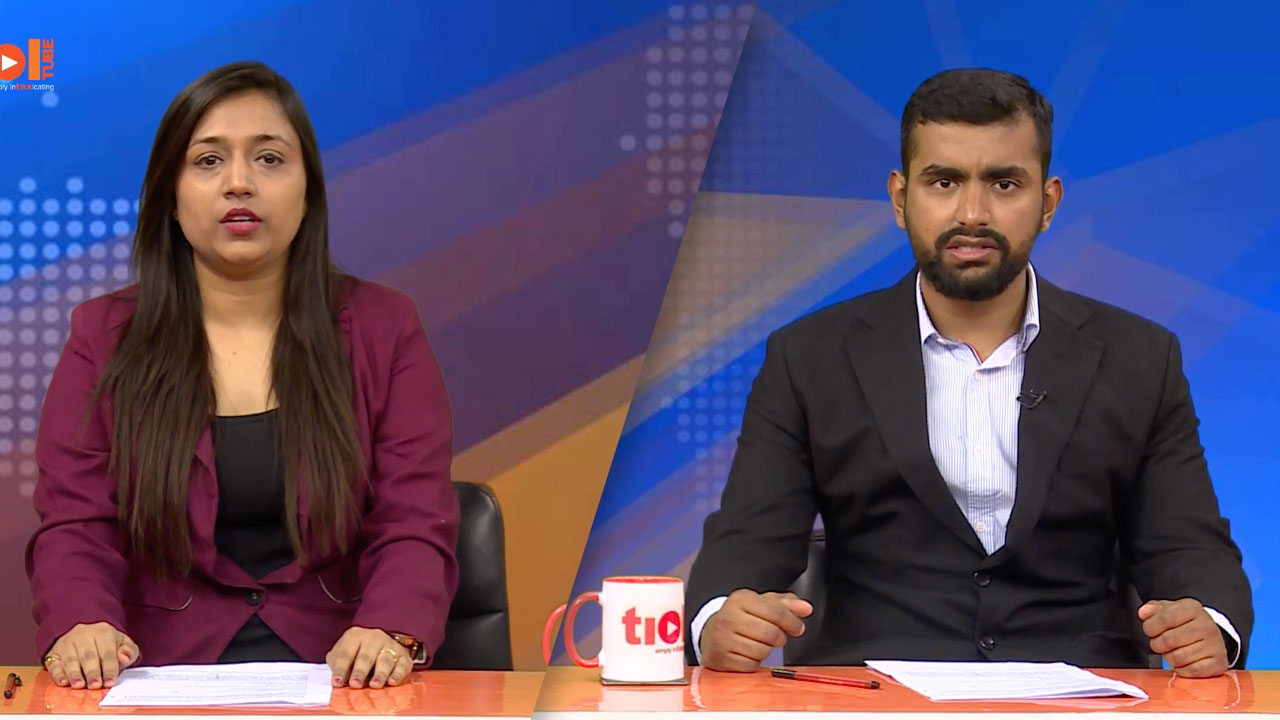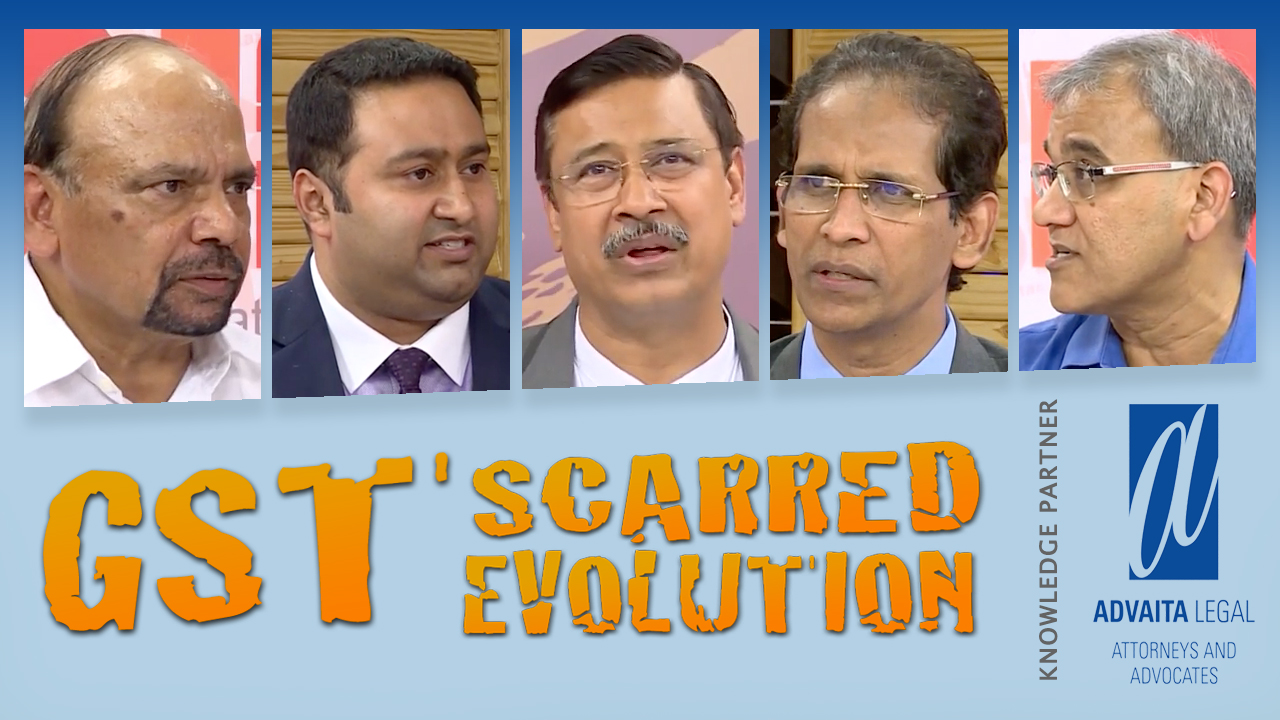SERVICE TAX
2018-TIOL-3451-CESTAT-BANG Reitzel India Pvt Ltd Vs CCT
ST - The assessee company, a 100% EoU, engaged in manufacturing Gherkins, Babycorn & Jalapenos, claimed refund of input services of Security Services, Canteen Services & Clearing and Forwarding Agent Services under Rule 5 of CCR 2004 r/w Notfn No 27/2012 - The original adjudicating authority granted only part of the refund - Such findings were sustained by the Commr.(A).
Held: The Commr.(A) correctly rejected the refund of input tax credit on security services as the invoice produced by the assessee was more than a year old - Moreover, Canteen Services do not fall within the definition of 'input service' w.e.f. 01.04.2011 - Outdoor Catering/Canteen Services have been specifically excluded from the definition of 'input service' - Hence the original authority erred in allowing credit on this service - Lastly, the Commr.(A) held that C&F services have been used beyond the place of removal whereas place of removal is the final port from where the goods are exported - As per Rule 2(9a) read with Circular No. 999/06/2015-CX dated 28.02.2015, place of removal is the final port from where the goods are exported - In this case, the port of export is Chennai & not ICD Bangalore - Hence rejection of refund is not sustainable: CESTAT (Para 1,5)
- Assessee's appeal partly allowed: BANGALORE CESTAT
2018-TIOL-3450-CESTAT-HYD
CCE, CC Vs Singareni Collieries Company Ltd
ST - The assessee company is a PSU engaged in Coal mining & supplying coal to various entities including the NTPC - The assessee collected loading charges from NTPC - The Department proposed to tax such receipts under 'Cargo Handling Service', on grounds that the coal so loaded counts as cargo & that such charges were collected over & above the value of the coal - In defence, the assessee claimed that such charges were included in the price of the coal & were levied because the assessee had to do extra work for the NTPC - Hence it claimed that such charges would not attract levy of service tax - Later, the Commr.(A) set aside the demands raised.
Held: The sale of coal happens after loading of coal is complete - Hence the coal is owned by the assessee at the time of its handling - Hence there is no client to whom the assessee rendered such service - Also, the invoices raised by the assessee reflect the coal handling charges as additional elements in cost of coal, chargeable for delivering coal as per NTPC's convenience - The assessee also paid VAT on the full cost of coal, including the loading charges - Thereby, no duty demand can be raised on such loading charges: CESTAT (Para 2,6)
- Revenue's appeal dismissed: HYDERABAD CESTAT
CENTRAL EXCISE
2018-TIOL-2425-HC-DEL-CX + Case Story
Som Pan Products Pvt Ltd Vs Revision Authority, Department Of Revenue
CX - Export of gutkha and claim of excise duty rebate in terms of rule 18 of CER, 2002 and notification 32/2008-CX(NT) - rebate denied by Commissioner(A) and revisionary authority on the ground that by a notification of 11.09.2012 issued by the Commissioner, Food Safety, Government of NCT of Delhi, the manufacture, storage, sale, transportation, display or distribution of Gutkha within the territory of Delhi was entirely prohibited; that under Section 2(33) of the Customs Act, 1962 'prohibited goods' are those goods which are subjected to "any prohibition under the Act or any other law for the time being in force" and its effect and objective could not be curtailed in the manner sought by the petitioner - Writ petition before High Court. Held: An anomalous consequence cannot be contemplated much less countenanced in law - legislative competence and concurrently, the co-extensive executive power, to deal with the subject matter of customs or international transactions are not with the State or the Union Territory but that of the Central Government or Parliament, as the case may be - upholding the revisional order would lead to anomaly in that so far as the Central Government or Parliament is concerned, gutkha per se is not prohibited at least for export, whereas, for the purposes of interpretation of the NCT notification, even export of gutkha is prohibited - impugned order of the Revisional Authority as well as the order of the appellate authority which it confirms cannot be sustained - same is quashed and the o-in-o is restored - Writ Petition is allowed: High Court [para 11 to 13]
- Petition allowed :DELHI HIGH COURT 2018-TIOL-3449-CESTAT-CHD
Him Teknoforge Ltd Vs CCE
CX - The assessee company is engaged in the manufacturing gears of tractors & harvesting combines, as well as parts thereof, such as pinions, couplings & hub/brake axle transmission shafts - These were classified under heading 84.33 of Schedule I to CETA 1985 - The classification list was approved and the goods were found not liable for payment of duty - Hence the assessee cleared such parts without payment of duty - The Department opined that the items in question were classifiable under heading 84.83 - Duty demand was raised with interest & equivalent penalty by invoking extended limitation - The Commr.(A) later held that extended limitation was not invokable and sustained the demand raised within the normal period limitation & allowed Cenvat credit claimed on inputs, while also setting aside the penalty - On remand by the Tribunal, the Commr.(A) held the extended limitation to be invokable & also re-instated the duty demand with interest & equivalent penalty.
Held: The Tribunal in Raja Forging & Gears held that in a matter involving interpretation of tariff entries, no mis-declaration or mis-classification could be alleged - In the present case, the assessee described the goods as part of harvesters combines which is not disputed that the items manufactured are harvester transmission - Thus the present case too involves issue of classification of goods - Hence extended limitation is not invokable & the penalty is unsustainable: CESTAT (Para 2,8)
- Assessee's appeal allowed: CHANDIGARH CESTAT Intas Pharmaceutical Ltd Vs CCE
CX - Whether the assessee is entitled for cenvat credit in respect of various services related to Sales Promotion Marketing which were received by them from foreign service provider on which the assessee had paid service tax on reverse charge - The case of department is that since the service received from overseas were neither used in relation of manufacture of final product nor used for removal of goods up to place of removal, it is not input service, the contention of department is also that the services were used beyond the place of removal, therefore, it does not fall under the definition of input service, accordingly, the cenvat credit was denied - In both the orders of lower authorities, it was not disputed that all the services are related to Sales Promotion Marketing of the goods exported by assessee, therefore, even though services even not used in manufacture of final product or upto place of removal, credit is admissible by virtue of inclusion clause of definition under Rule 2(l) of CCR, 2004 - From the definition, it can be seen that in the inclusion clause, Sales Promotion Marketing is specifically included in the definition - This inclusion removes any doubt that even though these services were not used in relation to manufacture but by specific inclusion, credit was allowed - There is no doubt that the services in question are input service in terms of definition of input service, accordingly, the credit is admissible: CESTAT
- Appeals allowed: AHMEDABAD CESTAT
2018-TIOL-3447-CESTAT-BANG
Atlas Copco India Ltd Vs CCT
CX - Assessee has various manufacturing locations across India and has a service tax registration in respect of its premises at Manyata Embassy Business Park, Bangalore and are engaged in rendering 'Consulting Engineering Service for customers / group companies located outside India - Assessee has obtained centralized service tax registration and CENVAT credit is distributed to various locations as an ISD - During period in dispute, January 2015 to March 2015, assessee has not provided any domestic services and all the services during this period were exported outside India - They filed application for refund of unutilized service tax paid on input services received and used in providing output services that are exported in terms of Rule 6A of Service Tax Rules for said period under provisions of Rule 5 of CCR read with Notfn 27/2012-CE - In the absence of certain documents, the refund was rejected - The services of consulting engineering have been rendered from Bangalore unit where the assessee has been registered as service provider - The Head Office of assessee is at Pune which is referred in centralized service tax registration and certificate issued by Registrar of Companies - All the accounting, finance and administration functions are housed in Pune and as a matter of internal control, all the invoices for inputs and input services, capital goods received at various branches are brought to the Pune office for verification and accounting and the same are paid by Pune office which is the Head Office of assessee - It is also a fact that FIRCs have been received at Pune for the services rendered from Bangalore unit of assessee - In the case of Mahindra & Mahindra Ltd. - 2015-TIOL-125-CESTAT-MUM , it was observed by Tribunal that when the invoices in the name of the company were issued in name of branch office and the payments were accounted at the Head Office having ISD registration, then there is no legal infirmity - The rejection of refund by Commissioner(A) is not sustainable in law and therefore the same is set aside: CESTAT
- Appeal allowed: BANGALORE CESTAT
CUSTOMS
NOTIFICATIONS
cnt92_2018
Govt reduces Tariff Values of Gold, Silver, Brass Scrap and all Edible oils ctariffadd18_055
Circumvention of Anti-dumping duty on imports of O-Acid through exports of O-Ester from China PR - Anti-dumping duty, therefore, extended to imports of O-Acid from PR China - to run co-terminous with ADD on O-Acid CASE LAWS
2018-TIOL-3446-CESTAT-MAD Value Marks Traders Pvt Ltd Vs CC
Cus - Assessee had imported used Digital Multifunction Printing Machine (MFD) vide Bill of Entry - Based on a Chartered Engineer Valuation report, the value was re-determined under Rule 9 of Customs Valuation Rules, 2007 - It further appeared to department that the impugned goods are covered under Schedule VIII of the Hazardous and other Waste Rules, 2016 - In the first place, Tribunal is not able to fathom how at the stage of appeal before Commissioner (A), the assessee chose to raise an issue of requirement of compliance under the Electronic & IT Goods Order, 2012 in respect of used MFDs when the said issue had not been raised in SCN or in adjudication order - Be that as it may be, having raised up the issue, the Commissioner (A) has analyzed the matter and arrived at a finding that the impugned goods would definitely require to be registered under the said 2012 order - Evidently, the MFDs which is a combination of printers, scanners, copiers etc. and a separate genre of machines do not find a specific entry in the schedule to the said notification - The finding of the lower appellate authority that impugned goods suffers from non-registration under BIS is flawed and is set aside - Even during the proceedings before original authority, assessee had drawn attention to the report of Technical Review Committee under the HOW Rules held on 18 & 19th October 2016 - Foot note at Schedule VIII of HOW Rules states that in the Policy, free trade for 'Multi Function Printer? and copying machine is to be reviewed once the MFD is domestically manufactured - This would evidently mean that there is no bar of import on such MFDs on account of HOW Rules - Viewed in this light, refusal to allow home consumption for this impugned goods on this score cannot sustain and is set aside - owever, it remains undisputed that the impugned goods are restricted for import as per 2.31 of FTP 2015-2020 and hence will become liable for confiscation under Section 111 (d) of the Customs Act, 1962 - Nonetheless, as there is no absolute prohibition on import of these goods and but only a restriction brought about by para 2.31 of FTP, there is no reason why assessee should not be given an option to redeem the goods for home consumption as per provisions of Section 125 ibid - Hence, that part of the impugned order denying their clearance for home consumption and instead ordering re-export on redemption fine cannot sustain and is set aside - Only for the limited purpose of determining the appropriate quantum of such redemption fine, the matter is being remanded to the adjudicating authority: CESTAT
- Appeal partly allowed: CHENNAI CESTAT
2018-TIOL-3445-CESTAT-AHM
R M Dhariwal HUF Vs CC
Cus - The assessee sought to export RMD Gutkha - The Customs Department opined that the packing material used was prohibited under Rule 5(d) & 5(g) of the Plastic Waste (Management And Handing) Rules, 2011 - Hence the goods were seized - Samples were drawn & tested - The assessee's paking material supplier also obtained a test report from CIPET stating that the plastic used is non-polluting in nature - The Revenue too obtained a test report from CIPET, which reiterated its findings - The Revenue appraoched the Central pollution Control Board which also held that the plastic used did not violate the mandate of Rule 5(d) & 5(g) - Nonetheless, the Revenue confiscated the goods & imposed penalties on the assessee & some of its key employees - Upon remand by the Commr.(A), such demands were re-iterated & later sustained by the Commr.(A).
Held: The test report originally obtained by the Revenue from the Customs laboratory at Vadodara is unclear as it does not specify the nature of the plastic - In contrast, the test reports from CIPET clearly mention the chemical composition of the plastic used & mention it to be non-polluting - Besides, when the Commr.(A) directed re-testing, the exercise was carried out whereupon the plastic was found to be bio-degradable in nature - Yet the adjudicating authority confiscated the goods & imposed penalties, in complete defiance to the directions of the Commr.(A), by holding there to be violation of Rules 5(d) & 5(g) irrespective of the chemical composition of the plastic - Such findings are illegal & unsustainable - Besides, the Apex Court in the assessee's own case & in Baba Global Ltd. vs. Union of India had held that goods manufactured in 100% EoU & which are exported are outside purview of Plastic Waste (Management and Handing) Rules, 2011 - It was also held that these rules were inapplicable to goods exported even though they used non-biodegradable plastic - Hence the confiscation & penalties are set aside: CESTAT (Para 1,4)
- Assessees' appeals allowed: AHMEDABAD CESTAT |









